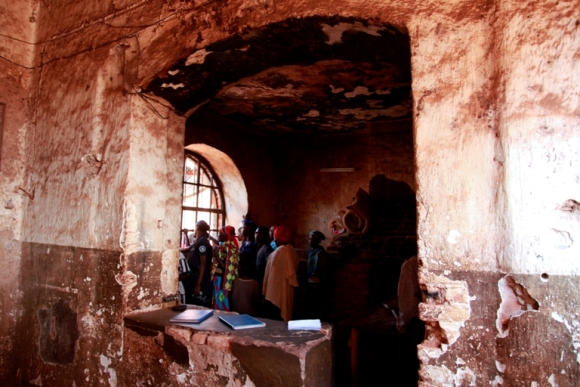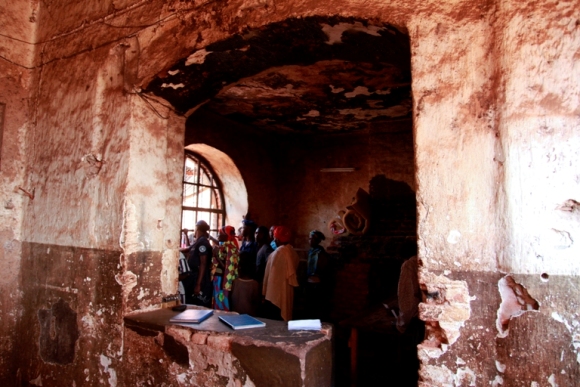
On July 23rd 2009, just about three weeks after the training and two roundtable discussions involving key stakeholders of the criminal justice system, the Minister of Justice, Jean Bosco Ndikumana, issued a circular at the attention of the President of the Supreme Court, the Director General of the Penitentiary Administration, Prosecutor General and other top officials to request them to proceed to the immediate release of all juveniles under 15 who have been kept in pre-trial detention beyond the legally mandated time. The next targeted category of prisoners is pre-trial detainees who have been kept on remand for 12 months while the offense they are accused of would require a sentence equivalent to less than 5-years imprisonment (according to art.75 of the new penal code). This alarm call reveals the great sense of urgency prevailing among domestic authorities, who have decided, after the prison population reached an unprecedented pick of 10,000 prisoners nationwide, to prioritize prison overcrowding and the related issue of pre-trial detention among other pressing needs.
Above: The entrance to Gitega Prison, whose occupancy rate is 377% as of May 2009. (Photo by Nathalie Mohadjer).
There is no doubt that the continuous lobby of IBJ Fellow and Country Manager, Astère Muyango, the series of meetings conducted with top officials in June 2009 and the momentum created by the widely-publicized training and roundtable events contributed to this unanimously acclaimed decision. The government representatives who took part in the series of training and roundtable workshops got invited via the Office for the Coordination of the Stakeholders of the Justice Sector (“Bureau de coordination des intervenants dans le secteur de la justice”), the initiator of the circular within the Ministry of Justice, with which Astère has been in constant touch, lobbying in favor of the rights of the accused persons.
Efforts to comply with the provisions of the newly enacted penal code, which brings up the age of criminal responsibility from 13 to 15 years-old, are greatly needed. However, when operating in a system which strives to rebuild from ashes, the key to reform is sometimes in the provision of the most basic tools. The Prison Director of Bubanza, Salvator Ngendahayo, recently admitted that he was very enthusiastic about implementing this circular and improving the living conditions in his prison, but that handcuffs crucially lack for wardens to escort detainees to the courtroom. The sad reality is therefore that people, whose guilt has not yet been objectively established, end up languishing in prison because unable to assist to their hearing. The Bubanza Prison occupancy rate – 430% – is amongst the highest in the country. The country’s penitentiary administration is significantly under-resourced: there is only one truck to transport prisoners from and to courts; and, quite frankly, after seeing the state of the vehicle at Mpimba Prison in late June 2009, we cannot seriously imagine that it can meet the demands of the country’s 6837 pre-trial detainees (May 2009 data from the Burundian Penitentiary Administration). Lack of transportation therefore means that, guilty or not, some detainees can stay up to 9 years waiting to appear before the judges. This is a “pretty” long period of time considering that life expectancy for men is equal to 51 years (according to 2009 data from the CIA World Fact book). This situation is unacceptable in the light of the principle of presumption of innocence which is enshrined in Burundi’s Constitution (art. 40).
Above: Bubanza Prison wardens lack handcuffs to escort detainees to the courtroom; here with defendants that IBJ volunteer lawyers eventually helped get released, July 2009. (Photo by Astère Muyango).
The urgency of the situation urged Déogratias Suzuguye, the Director of the Penitentiary Administration, whom IBJ delegation has already met twice, to invite IBJ to take part in a newly set up Task Force (“Plan d’action sur la maîtrise de la population carcérale 2009-2010”) whose main objective is to reduce prison overcrowding in 2009-2010. Specifically, the Task Force seeks to reduce pre-trial detention through improved coordination among the major stakeholders, institutional capacity-building and enhanced respect for the criminal procedures, in particular when it comes to delays. The hope is to expedite trials, have magistrates resort to pre-trial detention in the least cases possible, and make sure the accused are aware of their rights and legally assisted throughout the proceeding. This is a formidable window of opportunity for IBJ which, three years after its initial trip to Burundi, clearly has had an impact on building a climate for reform in Burundi.
Above: From left to right: Karen Tse, IBJ Founder and CEO, Déogratias Suzuguye, the Director of the Penitentiary Administration and Astère Muyango, IBJ Burundi Fellow and Country Manager meeting on June 26th, 2009. (Photo by Fanny Cachat)
